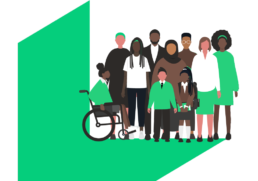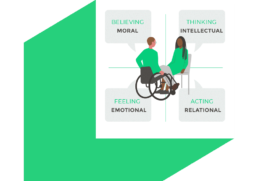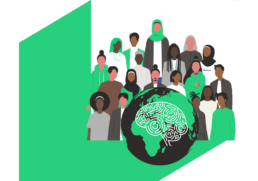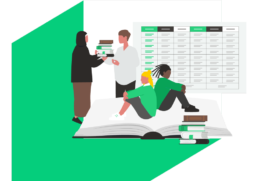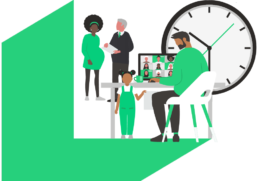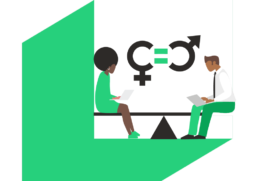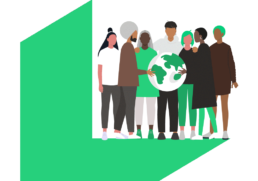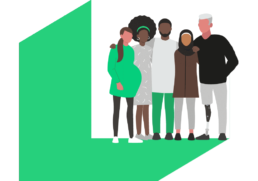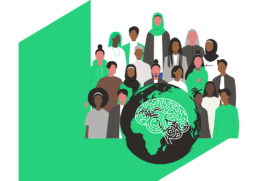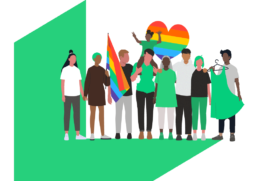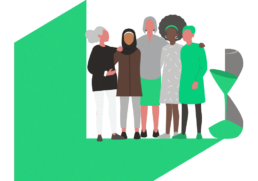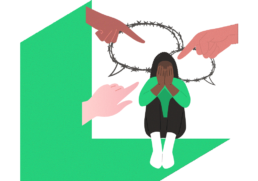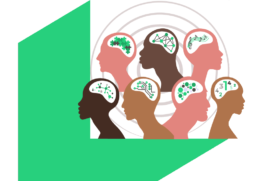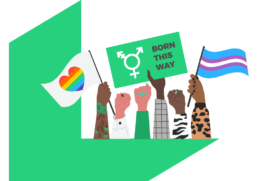Schools of Sanctuary

Schools of Sanctuary
Our vision at City of Sanctuary UK is that every community will proudly offer sanctuary to people forced to flee violence and persecution. To get there, we support a vibrant network, from community groups to councils, schools to libraries, all working to provide welcome to people seeking sanctuary. Schools of Sanctuary works with a growing network of more than 330 primary and secondary schools, all committed to providing support to the thousands of young people seeking sanctuary in the UK, whilst creating a culture of welcome and inclusion for all refugees and people seeking asylum.
To be recognised as a School of Sanctuary, schools must demonstrate that the whole school community has learnt about migration issues, embedded policies and practices of welcome and inclusion, and shared their learning and efforts with the wider community and Schools of Sanctuary network. In doing so, Schools of Sanctuary celebrates schools that proactively and effectively meet the needs of students from sanctuary-seeking backgrounds and/or take steps to challenge misinformation and inaccurate rhetoric around migration and promote social cohesion.
To support schools in their efforts, the Schools of Sanctuary team at City of Sanctuary UK organise regular events, signpost resources and advice, connect schools to local groups or organisations with whom they can partner and share case studies of best practice, all available on the website and outlined in the termly Schools of Sanctuary newsletter.
The Rainbow Flag Award
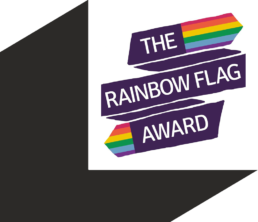
The Rainbow Flag Award
The Rainbow Flag Award is a national quality assurance framework for primary schools, secondary schools, SEND schools and colleges. The award focuses on positive LGBT+, (lesbian, gay, bisexual, trans, plus other related identities), inclusion and visibility.
The Rainbow Flag Award encourages a whole organisation approach to LGBT+ inclusion, as well as developing strategies to effectively challenge and combat LGBTphobic bullying.
Committing your school or college to the Rainbow Flag Award is a commitment to improve the lives of all the young people that you work with, as well as the LGBT+ young people in your care, those from LGBT+ families, and LGBT+ staff members.
SUPPORTING LOCAL
The Rainbow Flag Award is a national framework, that utilises only local LGBT+ youth organisations as delivery partners. This is a core guiding value of the award, which means that the training and services that are provided are relevant to, have understanding of, local communities and their needs. It also means that information shared through training and other communications, is current and fresh, representing the actual everyday experiences of LGBT+ young people in the local area.
Any monies generated by this scheme then help support, often underfunded, LGBT+ youth provision locally.
Our Trust Leaders Training
Our Trust Leaders' Training
Our Trust Leaders' Training
Our Training Offer
We support trust leadership teams with their DEI vision, mission and strategy to embed sustainable change.
We can deliver face to face and virtually, for central team development days, meetings and twilights.
We can be your critical friends and support you on your journey to develop confidence and competence in shaping inclusive policies and practices that work across your group of schools.
- Understanding key DEI concepts and language
- Communicating your DEI commitment through your vision, mission and values
- Gathering data about your organisation
- Developing cultural intelligence
- Creating belonging and psychological safety
- Modelling inclusive leadership behaviours
- Curating professional learning programmes to support training needs
- Holding courageous conversations
- Creating sustainable strategic plans for transformation over time
- AET
- Agora Learning Trust
- ATT
- Discovery Trust
- Djanogly Trust
- Elliot Foundation
- Gallery Trust
- King Edward’s Trust
- Pioneer Learning Trust
- Raleigh Learning Trust
- South Pennine’s Academies
- Summit Learning Trust
This programme has facilitated personal and organisation-wide growth and learning. It has been instrumental in supporting our ambitions around DEI and, as a result, is increasing diversity and inclusion MAT-wide.
Antonia Spinks, Co-CEO, Pioneer Learning Trust
Fantastic training – listening to Hannah talk about diversity, equity and inclusion was both inspiring and challenging; just what we needed as senior trust leaders to start the conversation about DEI across the Partnership. The training left leaders feeling ready and able to take the steps needed to ensure all children and adults across our organisation feel that they truly belong.
Rebecca Daulman, CEO, Agora Learning Partnership
We have done pockets of work around DEI across the last year but knew we needed to tie things together and ensure that all staff across the Trust had the same training so that we can move forwards collectively as one. From the moment I enquired about training, Hannah was passionate, knowledgeable, and supportive. Our expectations were exceeded by Audrey who delivered the training in a manner that took the whole staff with her. We now have a level playing field where all staff have received the same training meaning that we can explore our collective and individual lived experiences in a safe place.Ii can’t recommend Diverse Educators highly enough.
James Roach, CEO, Inclusive MAT
Our Governors Training
Our Governors' Training
Our Governors' Training
Our Training Offer
We support governing bodies in shaping the strategic direction of a DEI commitment.
We can deliver face to face and virtually, for governance development days, meetings and twilights.
We will support you on your journey to develop confidence and competence in shaping inclusive policies and practices.
- Developing an understanding of key DEI concepts and language
- Reflecting on our own identities and lived experience
- Exploring our individual and collective power, privilege and blind spots
- Leading sustainable change over time
- Creating a DEI infrastructure to distribute the leadership
- Reviewing policies and practices for inclusion
- Navigating potential media and PR fallouts around our commitment
- Association of Colleges
- Dr Challoner’s Girls’ High School
- Governors for Schools
- Halcyon International School
- Hatton Special School
- St Marylebone Bridge School
The session was thoughtfully planned and perfectly pitched to the audience. It was the right amount of information and discussion, and encouraged careful thought, reflection and planning.
Kate Brown, Assistant Headteacher, Dr Challoner’s High School
Our Senior Leaders Training
Our Senior Leaders' Training
Our Senior Leaders' Training
Our Training Offer
We support senior leadership teams in primary and secondary, in state and independent, in the UK and internationally with their DEI strategy.
We can deliver face to face and virtually, for leadership development days, meetings and twilights.
We can be your critical friends and support you on your journey to develop confidence and competence in shaping inclusive policies and practices.
- Developing an understanding of key DEI concepts and language
- Reflecting on our own identities and lived experience
- Exploring our individual and collective power, privilege and blind spots
- Communicating our DEI commitment through our vision, mission and values
- Understanding how to develop cultural intelligence
- Developing inclusive leadership behaviours
- Holding courageous conversations
- Creating sustainable strategic plans for transformation over time
- Christchurch Primary School
- Dr Challoner’s High School
- Hampstead School
- Handsworth Girls’ School
- High Storrs School
- New Mills School
- Villiers School
- West Buckland School
The session was thoughtfully planned and perfectly pitched to the audience. It was the right amount of information and discussion, and encouraged careful thought, reflection and planning.
Kate Brown, Assistant Headteacher, Dr Challoner’s High School
Our Toolkits
Our DEI Toolkits
Our DEI Toolkits
We are building a series of toolkits to collate resources on key themes affecting our diverse educators’ network and the schools we serve.
Thank you to our toolkit authors who have helped us to curate the recommended reading, listening and watching lists to develop knowledge and understanding on each theme.
Our current list of #DiverseEd toolkits include:
EQuality Training
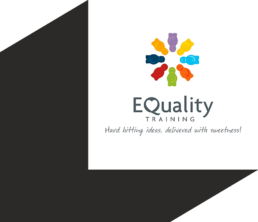
EQuality Training
EQuality Training is an innovative, vibrant company that designs and delivers tailored training in equality & diversity, inclusive practice and leadership
Ph.D. Accounting for human rights – Exploring accountability, human rights and legitimacy from a disability equality perspective
Books:
A Different Perspective on Inclusive practice – respectful language (2013).
A Different Perspective on Disability (2011).
Using dialogue to find a shared respectful language in order to build equity for vulnerable children and families from marginalised groups, at the ‘Honoring the Child, Honoring Equity 11’ world conference in Melbourne Nov 2011.
The language of respect, The British Educational Leadership, Management and Administration Society conference July 2012.
Respectful language: how the use of dialogue can support the moral development of leaders and a move towards a more respectful culture within organisations, in the US and special editions of the Journal of Psychological Issues in Organizational Culture 2013.
Toolkits:
Oldham children’s services – Inclusive Practice: a toolkit for outstanding settings
Durham early years’ service – Inclusive practice in the home and beyond
The Refugee Cafe

The Refugee Cafe
Our mission at Refugee Cafe is to use the power of food to support local refugees and migrants into employment. As part of this, we run training programs aimed at empowering refugees and migrants with a background in hospitality to find work in this industry.
Through a combination of theoretical classes and practical placements, this course will equip trainees with the skills and knowledge to find work in the UK’s culinary and hospitality industries. Trainees will have the opportunity to gain foundational knowledge of the UK food industry, UK work experience, Level 2 Food Safety and Hygiene qualification and professional references. They will also receive one to one help to work towards your long-term employment goals.
This is an eight-week, part time course, for anyone with refugee or migrant status and a passion for food and hospitality.
Disability Awareness Toolkit
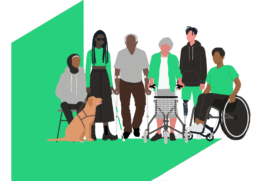
Disability Awareness Toolkit
Disability Awareness Toolkit
Toolkit collated by Chloe Johnson
What is Disability and Why Do We Need Disability Awareness?
To understand why we need Disability awareness, we must first look at how we understand disability.
A Disability is defined by the Equality Act 2010 a “a physical or mental impairment that has a ‘substantial’ and ‘long-term’ negative effect on your ability to do normal daily activities.” however the current disability movement suggests that it is society’s reaction to an impairment that forms a barrier, rather than the impairment itself, that is disabling.
- Lupus
- Cerebral Palsy
- Multiple Sclerosis
- Limb Difference
- Major Depressive Disorder
Not everyone with an impairment will necessarily identify as Disabled, and disabilities are not always visible or physical.
A disability can be viewed in a variety of ways. An outdated way to view disability is by the Medical Model, whereby disabilities are viewed as something to be fixed or cured, and places the responsibility of this on the Disabled person. The Social Model of Disability has been developed by Disabled people as a way to combat this model, and is a popular way of viewing disability. Though it is very popular, it is not the only way to view disability, and not everyone uses it.
Scope, a charity in the UK, defines the Social Model as:
“The model says that people are disabled by barriers in society, not by their impairment or difference. Barriers can be physical, like buildings not having accessible toilets. Or they can be caused by people’s attitudes to difference, like assuming disabled people can’t do certain things. The social model helps us recognise barriers that make life harder for disabled people. Removing these barriers creates equality and offers disabled people more independence, choice and control. Not everyone uses the social model and that’s ok. How anyone chooses to talk about their impairment is up to them.”
A disability can therefore, by the Social Model, be seen as having an impairment which society places barriers against. An example of the Social Model in action would be if a wheelchair user can not access a shop due to steps, suggesting putting in a ramp to combat the problem with the building, not the person. However, this model does not work for everyone and is not prescriptive. Those with chronic illnesses, for example, may not necessarily relate to this model. However, we can acknowledge that it is one way in which we can view disability that many Disabled people find helpful to combat ableism, prejudice and negative opinions.
The most important thing to note about disability awareness is that every disability experience is different and unique: what works for one Disabled person is not prescriptive for all Disabled people.
The Diverse Educators’ Disability Awareness Toolkit
- What is meant by disability?
- What are my preconceptions about disability and disabled people?
- What is the difference between disability awareness and disability rights?
- Why is disability awareness important for non-disabled people?
- Why do we still need disability awareness?
Articles
Blogs
Books
Podcasts
Resources
Videos
Elizabeth Wright TED Talk: Emily SEND’s Her Love, Re-imaging 'special' educational needs
Pregnancy and Maternity Toolkit
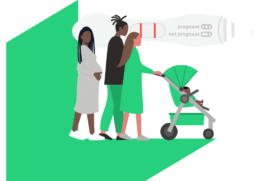
Pregnancy and Maternity Toolkit
Pregnancy and Maternity Toolkit
Toolkit collated by Emma Sheppard
What Is Pregnancy and Maternity?
- Pregnancy and maternity is a protected characteristic under the 2010 Equality Act that ensures that women’s employment rights including her health and safety are protected from when she becomes pregnant to 26 weeks after she has given birth.
- Maternity discrimination also extends for the period that a woman is on maternity leave.
- Beyond the 26 week / maternity leave period, discriminating against a mother is included in sex discrimination – either considered ‘direct’ or ‘indirect’ sex discrimination.
- Breastfeeding is now protected within the pregnancy and maternity characteristic.
- As a protected characteristic, pregnancy and maternity does not extend to fathers, women or men undergoing fertility treatment, adoption, non-birth mothers in same-sex relationships, mothers who are not breastfeeding after the 26 week / maternity leave period or when a mother stops breastfeeding.
- Women who fall under the protected characteristic of pregnancy and maternity are entitled to protection from pregnancy and maternity discrimination – any treatment, comments or behaviours that treat a woman unfavourably because she is pregnant, has recently given birth or is breastfeeding.
How Are Pregnant Women and Mothers Protected?
- Pregnant women and breastfeeding mothers are entitled to a risk assessment, updated according to any new developments in their pregnancy.
- Pregnant women are entitled to paid time off for antenatal appointments.
- During the pregnancy and maternity protected period, teachers should not be disadvantaged because of their pregnancy or time on maternity leave, which includes having access to training and development and opportunities to promotion.
- Teachers should not be subject to discriminatory behaviour, treatment or comments because of their pregnancy, time on maternity leave or decision to breastfeed.
- Teachers are entitled to maternity pay and conditions according to those outlined in the Burgundy Book.
- Teachers are entitled to 10 KIT days or 20 SPLIT days per parent, as mutually agreed with their employer.
- An employee’s job and terms and conditions, or a suitable alternative job on similar terms, is protected whilst on maternity leave.
The Diverse Educators’ Pregnancy and Maternity Toolkit
- How can we avoid pregnancy and maternity discrimination in our schools?
- How can we retain and support the career progression of teachers when they become mothers?
- How can we empower teachers over the pregnancy, maternity and return to work period?
- How can we reduce the gender pay gap in education by understanding more about, and addressing the ‘motherhood penalty’?
- How can we go beyond the current legal requirements to support colleagues undergoing fertility treatment, becoming parents through adoption or surrogacy, fathers, parents in same-sex partnerships and as teachers continue to balance their professional and parenting commitments beyond the protected period?
- How can we make our schools more ‘family-friendly’ employers, to benefit all staff?



